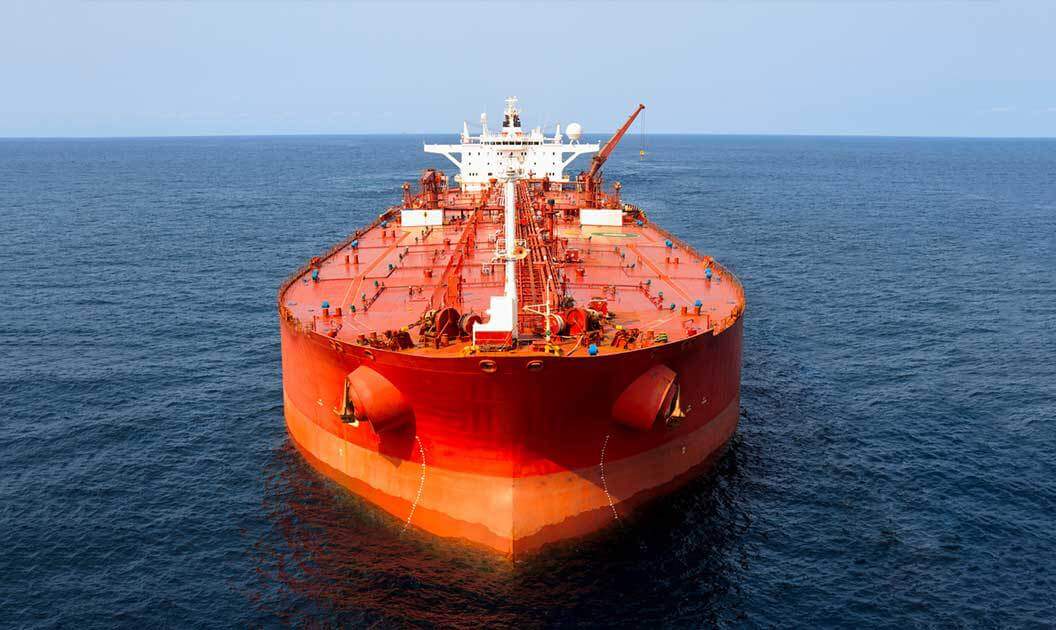Bulk transload is the service you’ll need when you’re shipping unpackaged goods in large quantities. Whether you transload to save money on shipping or transload out of necessity, you’ll find this service to be extremely useful.
Bulk transload can be performed for truck, rail and vessel transportation methods. To transload these goods to different modes of transportation, pumping and pneumatic systems are used to transfer the products. For transportation, bulk goods are moved using pneumatic and tanker trailers, cars and vessels.
We’ll explain bulk transload in detail to you and how using it will benefit you.

What is the Meaning of Bulk Freight?
Bulk freight is any type of freight that’s used to transport products that are not packaged and are transported in large quantities. Due to the fact they’re not packed, bulk goods can be loaded directly into the vehicle or vessel transporting them. Also called bulk cargo, this type of freight is transported in only large quantities rather than both small and large quantities the way break bulk and packaged goods can be shipped.
Some examples of bulk freight include the following:
- Grains
- Iron ore
- Coal
- Chemicals
- Vegetable oil
- Petroleum
Many types of bulk goods can be transported, but these are some of the common ones that are used every day. Bulk cargo is often confused with break bulk cargo which is slightly different. To learn more about that, check out our article on break bulk vs cross docking to find out more.

What Are the Types of Bulk Freight
While bulk freight can come in many different forms, there are only two specific types that these forms can fall under. The types are:
- Liquid bulk
- Dry bulk
Liquid bulk and dry bulk goods are very popular and are shipped around the globe frequently. Below we’ve included a table of the projected market growth of these two types of bulk freight.
Projected Market Growth For Liquid and Dry Bulk Goods
| Type Of Bulk Freight | Projected Market Growth |
| Liquid Bulk | $55.31 Billion |
| Dry Bulk | $363.92 Billion |
Provided by Business Wire Liquid Bulk Materials and Business Wire Dry Bulk Materials.
Since there are so many different types of bulk cargo, separating them into different categories will help you keep them organized and determine what type of transload facility you’ll require. We’ve explained the characteristics of each type of bulk cargo in the sections below.
Liquid Bulk
Liquid bulk goods consist of a vast array of items. On some occasions, liquid bulk goods can be exceptionally dangerous. Chemical and petroleum goods, for example, are handled especially carefully due to the negative impact they can have on the environment and people.
When it comes to transporting liquid bulk goods from one destination to the next, the following types of equipment are used:
- Vessel transport - Tanker Ship
- Rail Transport - Tanker Car
- Truck Transport - Tanker Trailer
The process to load and unload liquid bulk goods is a fairly simple process that’s roughly the same across tanker ships, cars and trailers. Essentially, loading and unloading are completed using hoses. These hoses attach to the tanks themselves and are used to suck liquids out or pump them into the tanks.
During the transloading process, these types of equipment will have to be used for liquid bulk transloading to be performed. If you want to learn more about bulk liquid transloading, check out our article on the topic.
Dry Bulk
The next type of bulk freight we’ll discuss is called dry bulk freight. While they’re the opposite of liquid bulk goods, dry bulk goods are largely transported in the same manner that liquid bulk goods are.
Dry bulk goods are transported using the following equipment:
- Vessel Transport - Dry Bulk Ship
- Rail Transport - Hopper Cars or Pneumatic Cars
- Truck Transport - Pneumatic Trailers
When it comes to loading and unloading dry bulk ships, rail cars and trailers, two specific methods can be used. These methods are:
- Dumping the dry bulk goods into the vessel or equipment used to carry them
- Using pneumatic systems to suck out or pump dry bulk into the vessel or equipment used to carry them
Dumping dry bulk goods is a loading strategy that’s more often used for loading dry bulk vessels. This can be done either with a conveyor system that pours the product out or with the help of load spouts that feed into the cargo hold. The strategy of dumping dry bulk goods is typically used for loading hopper cars as well.
For pneumatic rail cars and trailers, a pneumatic system has to be used to transfer dry bulk goods from one mode of transport to another. Either of these processes will also have to be used during dry bulk transloading from one transportation option to another.

What To Look For In A Bulk Transload Facility
There are numerous transload facilities that can perform transloading services for dry and liquid bulk goods. That said, you must be careful when choosing a bulk transload facility, as many aren’t equipped to perform the task you require of them.
Some of the best bulk transloading practices include the following:
- The right equipment
- Fast loading/unloading
- Experience
- Good reviews
When researching a transload facility and provider, be sure to look out for the following characteristics that we discuss below.
- The Right Transload Facility
The first thing to determine if the facility that you want to use even offers the transloading service that you need. Some transload facilities don’t go into detail about what products they can transload.
When researching a transload facility, you can also look into what types of equipment they use to determine if they can transload your bulk goods. Equipment that you should look for are:
- Mechanical conveyance
- Pumps
- Pneumatic conveyance
- Lifting equipment
- Steam boiler
- Spill containment
- Storage space
When you find a facility that interests you, take the time to go through its website to find out what goods it can handle.
- Fast Loading/Unloading
Another important aspect of a transload facility is its ability to perform transloading services at a fast pace. One way you can determine how fast a transload facility operates is to ask how much freight they transload every day. Based on how much the facility processes, you can determine how fast their transloading operations are.
- Experience
Another factor that can help you determine how reliable a transload facility is is the level of experience of the company that operates the facility. Typically, the website of the company that runs the transload facility has an “about us” section where they discuss their years of experience. Oftentimes, the more experience they have, the more you can count on their services being reliable.
- Good Reviews
Checking the reviews of a transload facility is also something you should consider. If you start to find a pattern of complaints about a transload facility, it’s best to avoid it and start looking for another. That said, patterns of goods reviews are also helpful and can give you good insight.
Transload Services USA Has You Covered
At Transload Services USA, we can perform transload services for your bulk shipments. We have a team made up of individuals who have vast amounts of experience in the logistics industry. With our support, we guarantee that your goods will be transloaded fast and safely.
Some of the other services that we provide at Transload Services USA include:
These services will help solve some unique problems that you might face during the shipping process. Fill out your quote or call our team at (352) 282-4588.


